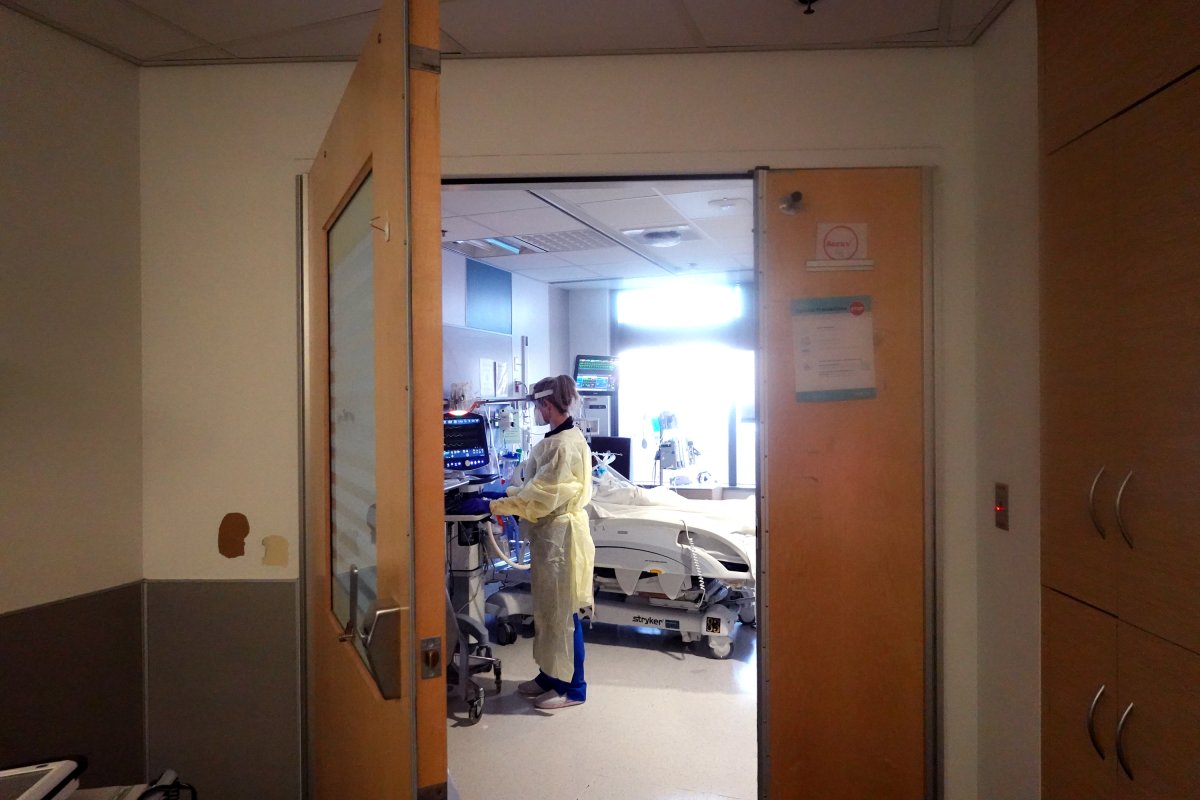The number of new hospitalizations with coronavirus across the U.S. has dropped for a sixth consecutive week, suggesting a surge of winter infections is now waning.
Figures compiled by the Centers for Disease Control and Prevention (CDC) show that the highest number of weekly hospital admissions with the virus came in the week ending January 6, when more than 35,000 people were admitted. In the latest recorded week, ending February 17, nearly 19,000 were—a drop of around 46 percent.
At the same time, the number of COVID-19 tests returning positive results has declined, with a nationwide test positivity rate of 8.1 percent in the week to February 17; this is a decrease of 1.3 percent on the week prior. At the end of December, the test positivity rate was around 12.3 percent.
The uptick in cases and hospitalizations is something health officials expected during the winter months. Colder weather tends to lead to an increased spread of viruses and other infections because immunity is lower. There was a rise in cases early on in the winter, with a shallow peak of over 20,000 hospitalizations in early September. Weekly hospital admissions then fell gradually through to the start of November, before rising again ahead of the holidays.
This winter has also seen early rises in other respiratory viruses, including the flu and respiratory syncytial virus, or RSV.
Elevated infections of respiratory diseases such as COVID-19 and influenza led some hospitals in states with high population densities to bring in fresh mask mandates toward the end of 2023. A significant decrease in infections could allow providers to relax preventative measures.
The CDC maintains that COVID "is still a public health threat" and continues to recommend utilizing measures to prevent infections.
While the number of hospitalizations—which serves as a rough indication of the ongoing severity of the pandemic—has consistently decreased recently, another rise cannot be ruled out. Hospital admissions rose to a peak of nearly 45,000 in July 2022, while August 2021 saw one of almost 86,000.
However, an increase of antibodies to fight the virus among the population through prior infections and vaccinations is expected to limit the severity of illness people suffer from infections. The current levels remain well below the highest recorded peak: more than 150,600 patients in the week ending January 15, 2022.
When approached for comment, a CDC spokesperson directed Newsweek to an update on Friday. It noted that, while there had been periodic peaks of transmission, "severe outcomes from COVID-19 have substantially decreased since 2020 and 2021," with hospitalizations decreasing 60 percent from 2021 to 2023 and deaths by 83 percent.
"Although COVID-19 infections continue at a level similar to past years, the likelihood of a new infection causing hospitalization or death has decreased," the update said, adding that this was also because of antiviral medications such as Paxlovid.
The number of deaths attributed to COVID-19 has also seen a downward trend in the past five weeks, going from a weekly total of 2,484 in the week ending January 13 to 526 in the week ending February 17.
There is often a delay between a patient being admitted to hospital with a serious infection with COVID-19 and it potentially causing their death. So, a seasonal peak in hospitalizations may precede a peak in deaths by a week or two.
The CDC says that data for recent weeks may be incomplete due to delays between a death and a death certificate being completed. It adds that those recorded included deaths in which COVID-19 was listed on a death certificate "as an underlying or contributing cause of death." This suggests that the virus may have not been the main cause of death, but facilitated a deterioration of the person's health.

Uncommon Knowledge
Newsweek is committed to challenging conventional wisdom and finding connections in the search for common ground.
Newsweek is committed to challenging conventional wisdom and finding connections in the search for common ground.
About the writer
Aleks Phillips is a Newsweek U.S. News Reporter based in London. His focus is on U.S. politics and the environment. ... Read more
To read how Newsweek uses AI as a newsroom tool, Click here.






